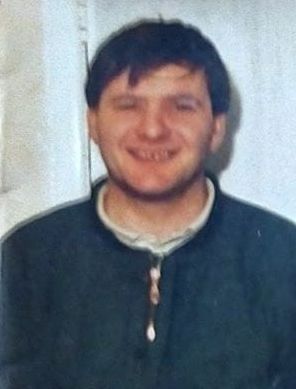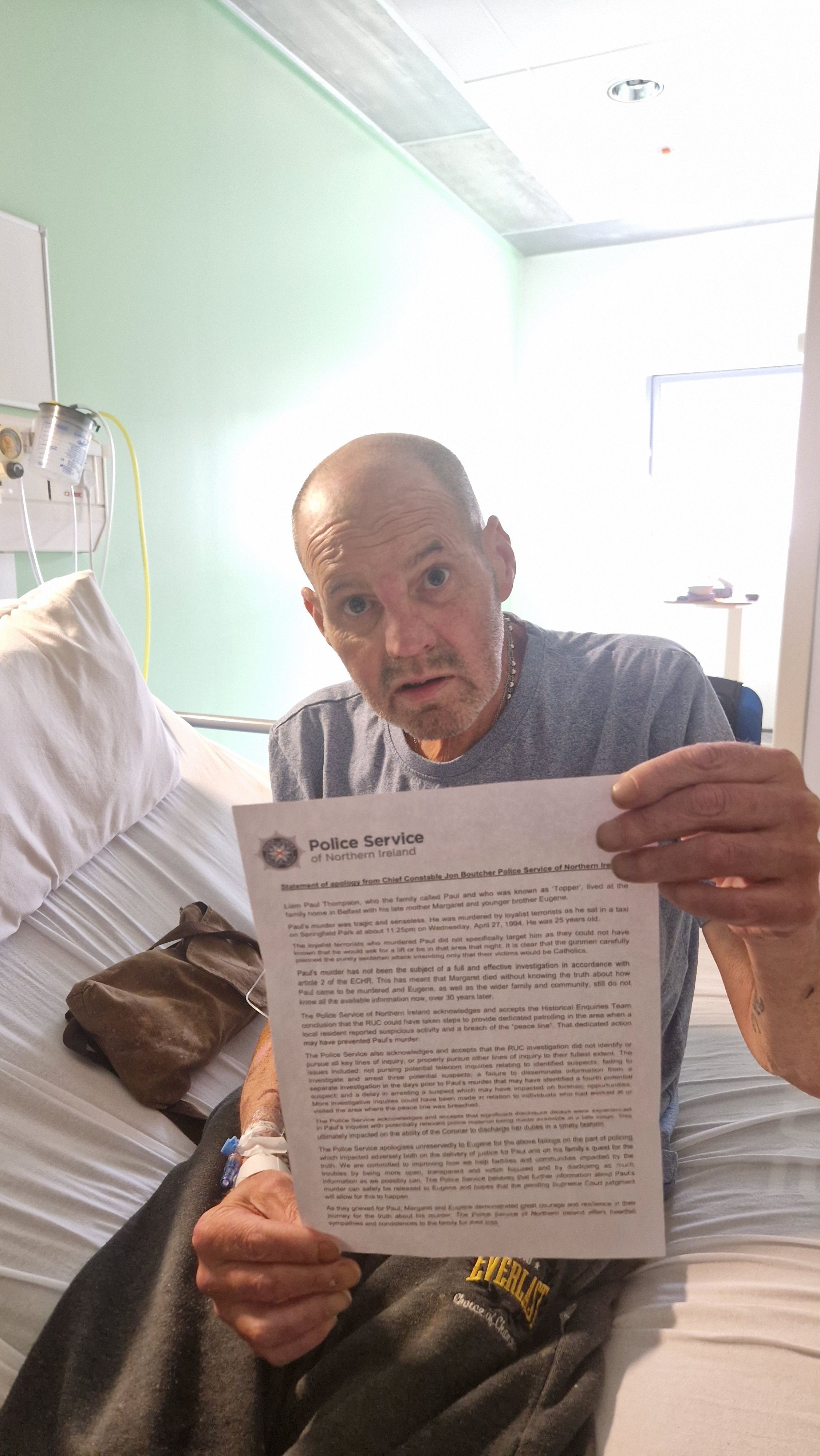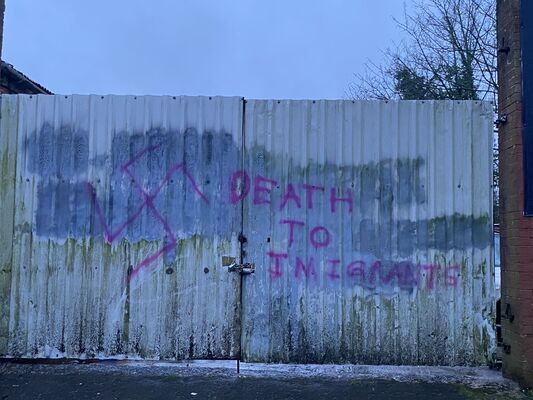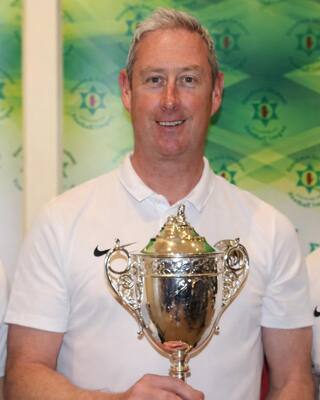THE terminally-ill brother of West Belfast man Paul ‘Topper’ Thompson who was murdered in 1994 has received an apology from PSNI Chief Constable Jon Boutcher in hospital.
Paul Thompson (25), was shot dead by the UDA in Springfield Park on 27 April 1994. A loyalist gunman fired through a hole which had been cut into an interface security fence, hitting him as he sat in the passenger's seat of a taxi.
Paul 'Topper' Thompson
The family have always suspected collusion in the killing as the RUC had been alerted earlier in the day to the breach in the 'peace wall'.
A Supreme Court ruling on the PSNI and Secretary of State's attempts to block information regarding the murder of Paul from being released by the coroner is due imminently. The appeal follows earlier rulings by the Northern Ireland High Court and Court of Appeal in favour of disclosure to the Thompson family.
Following the passing of Paul's mother, Margaret, his brother Eugene has continued the battle for the truth about the sectarian murder.
On Tuesday, Chief Constable Jon Boutcher personally delivered the apology to Eugene in the Mater Hospital, following Eugene's request for an apology from the PSNI. The apology acknowledged that there were RUC failures to investigate and arrest potential suspects, significant disclosure delays by the police to the inquest and that the RUC could have taken steps that may have prevented Paul’s murder.
"The Police Service apologises unreservedly to Eugene for the above failings on the part of policing which impacted adversely both on the delivery of justice for Paul and on his family’s quest for the truth," the statement from the Chief Constable said.
"As they grieved for Paul, Margaret and Eugene demonstrated great courage and resilience in their journey for the truth about his murder. The PSNI offers heartfelt sympathies and condolences to the family for their loss."
Eugene welcomed the apology from the Chief Constable.
“I thanked Jon Boutcher for coming himself and for acting quickly in delivering the apology from the PSNI after we had asked for it," he said. “That’s different to the British Supreme Court who also know my situation and I had hoped they would have made their judgment by now but there is no sign of it.
“The apology makes clear the RUC didn’t investigate and arrest suspects when they could have and that they could have done things that could have prevented Paul’s murder.”
Daniel Holder Director of Committee on the Administration of Justice (CAJ) said: “Eugene and before him his and Paul’s mother Margaret, have long fought for justice and truth in relation to Paul’s murder.
“The High Court and Court of Appeal ruled over a year ago that Eugene was entitled to see the information in the Coroners ‘gist'. The Secretary of State appealed the Supreme Court hearing was back at the beginning of June and Eugene is still awaiting the ruling.
“It’s welcome that the PSNI Chief Constable has quickly delivered this apology in relation to the RUC and PSNI failings.
Mark Thompson, from Relatives for Justice said the Chief Constable's apology was a 'significant development'.
"We were hoping that the Supreme Court ruling would have been more swift because counsel, even for the PSNI and and Eugene's counsel had made the case on humanitarian grounds that he was terminally ill and that they made an application asking the panel of judges to take all of that into consideration, which they say they said they would.
"The Chief Constable, in his letter of apology has disclosed the failings from the PSNI and said the murder of Paul was entirely preventable.
"Between Margaret and Eugene, they have never given up. They have fought this tooth and nail and refused to accept all the lies and challenged everything.
"It is now up to the Supreme Court to deliver their ruling. They have fought a position to which the courts, the courts in Belfast and the Court of Appeal in Belfast have all said that the gist that the coroner wanted to provide should be provided and that intelligence and information is not damaged in national security, but it is important in that it provides a motive, it examines and tells us that agents of the state were involved, that there was intelligence, that this could have been preventable and the families need to know that."







